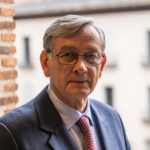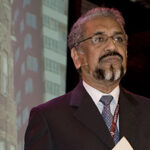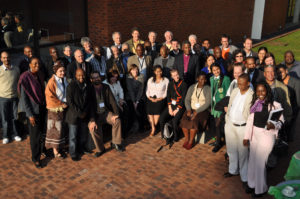Club de Madrid President Danilo Türk, who is also a former President of Slovenia (2007-2012) and Vice-president Cassam Uteem, a former President of the Republic of Mauritius (1992-1997, 1997-2002) have just published an important contribution to the historic debate on global efforts to meet the challenges of the 21st Century.
Edited by UK’s MP, Liam Byrne, the book Just Transitions: A Roadmap to the Century Ahead features contributions from experts, including the chapter written by Club de Madrid Members Building Back Better: Transforming our Global Economic Governance Institutions for Shared Societies
Our Chapter: Building Back Better
The chapter proposes going beyond concepts of social justice, inclusion and equity as guiding principles by making them core objectives of the global governance framework. Both Türk and Uteem point out how to make the best use of our increasingly diverse and connected societies by placing these principles at the core of our efforts as stewards of global economic security. Read below some excerpts of the book’s chapter by Club de Madrid Members:
We find ourselves at an unfortunate crossroads for humanity in which the strategies and models we have built through much sacrifice are proving inadequate for the challenges confronting us ever more urgently. As the last century came to a close, we held a certain confidence that the benefits of liberal democracy were increasingly evident to all. This has proven not to be true. Those benefits, distributed less equitably over the ensuing decades, have allowed for mounting divisive and polarizing inequality and a feigned triumphalism of non-democratic models increasingly employing the tools of repression.
Given the magnitude of its health, economic, social and political consequences it is easy to overlook the reality that the global COVID-19 pandemic is just the latest of a daunting catalogue of transcendent challenges to the world we believe we know.
As Members of the WLA-Club de Madrid, over 110 democratic, former Heads of State and Government, we have a moral responsibility to share our leadership experience in shaping analysis and crafting dialogue which lead us to transform our current structures into more human-centered and resilient ones, capable of effectively responding to the challenges of the times.This means big ideas that go beyond once-in-a century regeneration. We may, at present, be faced with a once-in-a-civilization moment in which our resilience and cultural continuity may very well hang in the balance.
Fortunately, we have a well-developed set of globally accepted principles and foundations from which to build forward. These concepts represent a potential underpinning for the real task of our times: reinventing democracy for the 21st century based on a new Social Compact to engage public institutions, civil society and the private sector with full social inclusion to ensure no one is left behind. This updated Social Compact must be built around respect not just for negative freedoms and individual rights but also empower positive freedoms, allowing people to exercise their capacities and achieve their potential. If liberal democracy has not been able to build equitable well-being, create social cohesion, fulfil the aspirations of diverse and newly engaged constituencies and respond to the myriad of 21st century challenges, we need to undertake its transformation.
Making our global economic governance institutions transformative in this sense, or returning them to their original philosophical purpose, if you will, is no less formidable a task than reinvigorating democracy. But the times demand such vision and verve, and the imaginable alternatives are clearly less desirable. Social justice, inclusion and equity can no longer remain just guiding principles. They have to be placed at the core of our efforts as stewards of global economic security.
Interested? These themes and more will be developed at our Annual Policy Dialogue ‘Multilateralism that Delivers’ held October 28-30.


